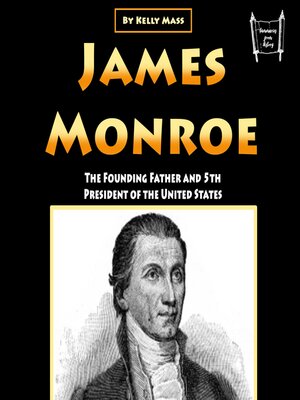James Monroe
audiobook (Unabridged) ∣ The Founding Father and 5th President of the United States
By Kelly Mass

Sign up to save your library
With an OverDrive account, you can save your favorite libraries for at-a-glance information about availability. Find out more about OverDrive accounts.
Find this title in Libby, the library reading app by OverDrive.



Search for a digital library with this title
Title found at these libraries:
| Library Name | Distance |
|---|---|
| Loading... |
This audiobook is narrated by a digital voice.
James Monroe was born on April 28, 1758, in Westmoreland County, Virginia, into a planter family whose modest means and strong commitment to education would profoundly shape his character and destiny during one of the most transformative periods in American history. His father, Spence Monroe, was a carpenter and small planter who had worked his way up from humble beginnings to acquire several hundred acres of land and a small number of enslaved workers, demonstrating the kind of industrious ambition that characterized the rising middle class of colonial Virginia. His mother, Elizabeth Jones Monroe, came from a family of Welsh ancestry that had established itself as part of the Northern Neck's respectable gentry, providing young James with connections to the network of influential families that would prove crucial to his later political advancement.
The Northern Neck region of Virginia where Monroe spent his formative years was already legendary as the birthplace of great American leaders, having produced George Washington, Robert E. Lee's family, and numerous other figures who would play significant roles in the founding and early development of the United States. This environment of political awareness and public service created a culture that encouraged young men of talent and ambition to pursue careers in public life while instilling values of honor, duty, and civic responsibility that would guide Monroe throughout his long career in national politics. The combination of modest family circumstances and exposure to political greatness taught him both humility about his origins and confidence in his ability to rise through merit and dedication.
Monroe's early education began with private tutors, as was customary for Virginia planter families, and continued at the small academy conducted by Parson Archibald Campbell, where he received the classical education considered essential for young gentlemen of the eighteenth century.







